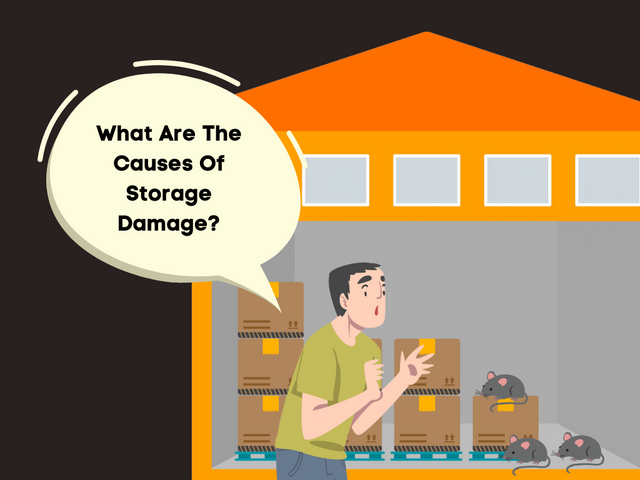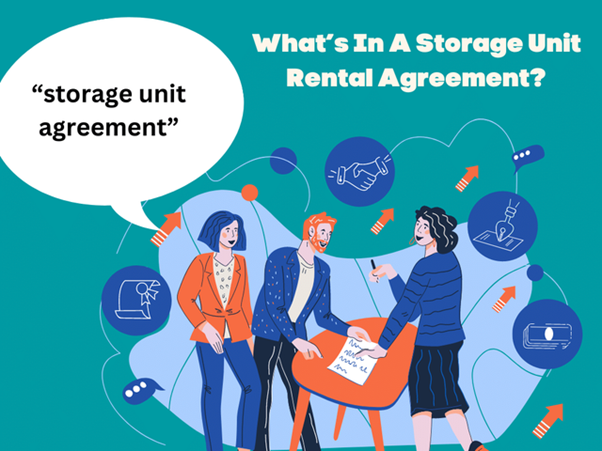The purpose of renting storage units is to safeguard the objects stored inside until they are needed. What’s ideal is that self storage in Singapore can be a cost-effective choice for both short- and long-term storage needs.
They are often units that offer a reliable, accessible, and simple solution for people needing temporary or permanent space. Most storage facilities have a variety of unit sizes and amenities to match your requirements.
The operation of most storage facilities is standard. Once you’ve located a storage facility in your area, you can rent a unit by signing a contract for a set period with the storage provider. Depending on their services, storage facilities may have different rules and regulations, but in any case, you should only pay for the time you use the unit.
However, how much do you know about the storage space rental agreement and insurance? Here’s a guide to help you before signing anything online or in-person.
What’s In A Storage Unit Rental Agreement?
The rental agreement is the backbone of a storage rental in Singapore. Each tenant’s responsibilities and rights will be in the contract. Before signing, be sure to read the print. This agreement can be signed in person or digitally, depending on the situation or on how you choose to sign up for a rent. Once signed, its terms will be legally binding. Standard provisions for a rental agreement include:
- Explanation of the parts
- Rental agreement or duration term
- How much rent you’ll pay
- Modalities for taking payments
- Property management duties and protections for tenants
- Responsibilities of the tenant (such as not occupying the unit for extended periods)
- Conditions for refunding
- Limits and allowances for storage
- Defaulting on payments
You should know that it’s against the law at the federal and state levels to make your storage units your primary residence.

What Are The Causes Of Storage Damage?
Storage space rentalis a safe place, but there are typical reasons why it gets damaged.
1. Thieves
Once you research, you’ll find storage units that don’t seem to be in the most illuminated neighbourhoods. They are typically located in the suburbs of town and have minimal protection. Many tenants often deal with broken locks and missing or damaged belongings after renting a storage container.
In this case, when looking for self storage in Singapore, check the location and the security measures they have. Security provided by establishments might vary widely. Your storage unit should have its lock, someone should be on the premises, and cameras should monitor the perimeter.
2. Natural disasters
A natural disaster can wipe out entire storage units, or they could be random, with some rooms taking heavy damage while others become untouched. Natural catastrophes are a significant problem for storage facilities.
When looking for storage space rental, know about your insurance. As soon as you receive the agreements, read them thoroughly and discuss any concerns you may have with the rental agency. If you find the coverage insufficient, you may consider extra insurance.
3. Bugs in the warehouse
Pest infestation is one of the most prevalent issues that people face. Padded furniture and appliances with several compartments are familiar places where you’ll see them.
Rodents like rats would feel quite at home in one of these structures. They will destroy furniture by chewing on it, making nests, and shedding all over it. You don’t want to open the door and have rats running all over.
Finding cheap storage in Singapore is beneficial, but choose a maintained warehouse.
What Does Storage Rental Insurance Include?
<img src=”https://i.ibb.co/Wvc97pC/What-Does-Storage-Rental-Insurance-Include.png” alt=”What-Does-Storage-Rental-Insurance-Include” border=”0″></a>
Before you agree to any storage rental in Singapore, you should research whether or not the facilities offer insurance plans. If anything were to happen to your unit, this would be an excellent approach to safeguard your financial security.
Always make sure you understand precisely what the policy covers before signing up. While most policies will cover losses due to weather, you may want to consider adding coverage for robbery or raising the max amount you are responsible for in the event of a loss.
Your storage unit’s rental insurance often covers your belongings’ total value. If you want to protect anything worth a certain amount, you can buy the insurance and then pay a fixed monthly cost.
The price is comparable to the priceless benefit of having no worries. The process of filing a claim is similar to that of any incident. After conducting an investigation, the insurance company will compensate you for the loss.
If your storage space rental company does not provide the coverage you require, you always have the option of purchasing it from a separate party.
What To Do To Get Your Belongings Ready For Storage
<img src=”https://i.ibb.co/VL9qHK3/What-To-Do-To-Get-Your-Belongings-Ready-For-Storage.png” alt=”What-To-Do-To-Get-Your-Belongings-Ready-For-Storage” border=”0″></a>
1. Review the guidelines and limitations
Before putting anything in your storage units, be sure you know what is and is not permitted. For example, no explosives, chemicals, or other potentially dangerous objects are allowed.
2. Have a list of your items
Create an itemised list of your possessions if you want to keep them in storage for a significant time. In any other case, you run the risk of forgetting what it is you put away. For insurance concerns, make sure to document everything.
Put an inventory list in one convenient location to ensure you never lose track of your possessions.
3. Secure your packaging
When renting self storage in Singapore, prepare your belongings as if you were moving. It also means you should put a label on every package. To ensure everything is protected, you must store all fragile items in a box with bubbles or paper.
4. Have a plan
Don’t just throw things in the storage container; think about where you’re putting things. Place goods you regularly use near the front of the storage container for easy access. You should store items you don’t need in the back.
Get the best storage solutions!
Need more room in your home but can’t seem to shake your storing tendencies? Check out the storage units of SelfStore. Give them a call right away to free your home or workplace of the many unnecessary seasonal items!

